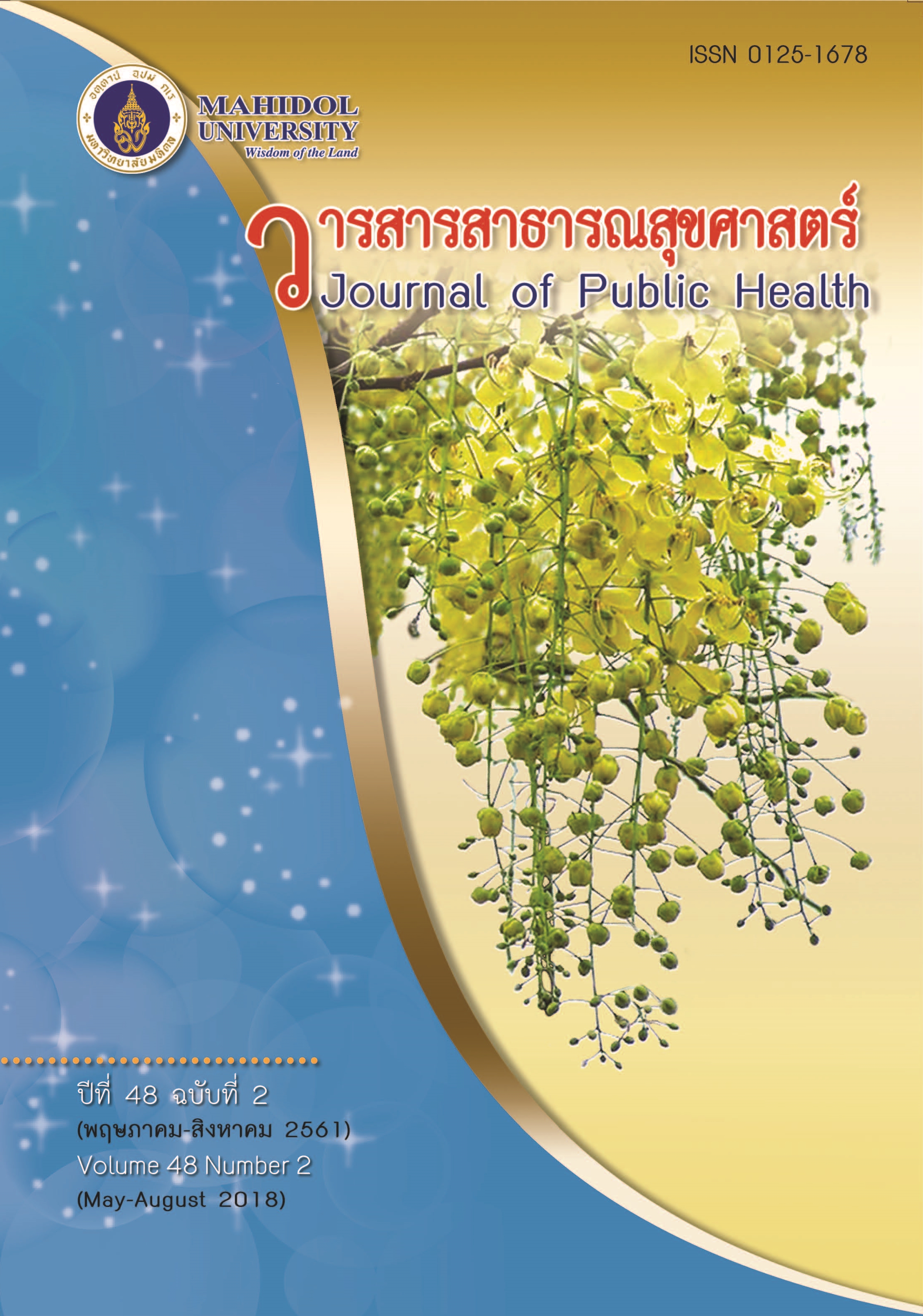Influenza Vaccine Acceptance among Pregnant Women Attending the Antenatal Care Clinic at Siriraj Hospital
Keywords:
knowledge of influenza, benefits of influenza vaccineAbstract
This cross-sectional research aimed to study the proportion of acceptance of the influenza vaccine among pregnant women, and to identify the factors associated with vaccine acceptance. The study sample comprised 256 subjects, 18 years or older, with a gestational age of 16 weeks or more. Data were collected using self-administered questionnaires and were analyzed using descriptive statistics, the Chi-square test and multiple logistic regression. This study found that the acceptance rate of the influenza vaccine was 35.2% among the sample pregnant women. The subjects were knowledgeable about influenza and the preventive vaccine (64.8%). They had a ‘good level of perceived susceptibility (25.0%), a ‘good’ level of perceived severity (50.0%), a ‘good’ level of perceived benefits to having the influenza vaccine (39.8%), and a ‘good’ level of perceived barriers to having the influenza vaccine (24.6%). Factors associated with the acceptance of the influenza vaccine included having received advice from personnel, friends or family members (Adj. OR = 2.23; 95%CI: 1.03 – 4.81), knowledge of influenza and the influenza vaccine (Adj. OR = 2.67; 95%CI: 1.39 – 5.14), perceived benefits to having the influenza vaccine (Adj. OR = 12.04; 95%CI: 1.43 – 101.32) and perceived barriers to having the influenza vaccine (Adj. OR = 2.24; 95%CI: 1.02 – 4.94). Based on the findings of this study, physicians and nurses are recommended to educate pregnant women and those close to them about influenza infection and the preventive vaccine to increase their motivation to have the influenza vaccine.
Downloads
Published
Issue
Section
License
Creative Commons License CC-BY-ND


